Exercise 5: Explore Ansible Automation Platform
Read this in other languages:  English,
English,  日本語,
日本語,  Español.
Español.
Table of Contents
Objective
Explore and understand the lab environment. This exercise will cover
- Determining the Ansible Automation Platform version running on the control node
- Locating and understanding:
- Inventory
- Credentials
- Projects
Guide
Step 1: Login to Ansible Automation Platform
-
Return to the workshop launch page provided by your instructor.
-
Click on the link to the Ansible Automation Platform webUI. You should see a login screen similar to the follow:
Screenshot of Ansible Automation Platform login window.
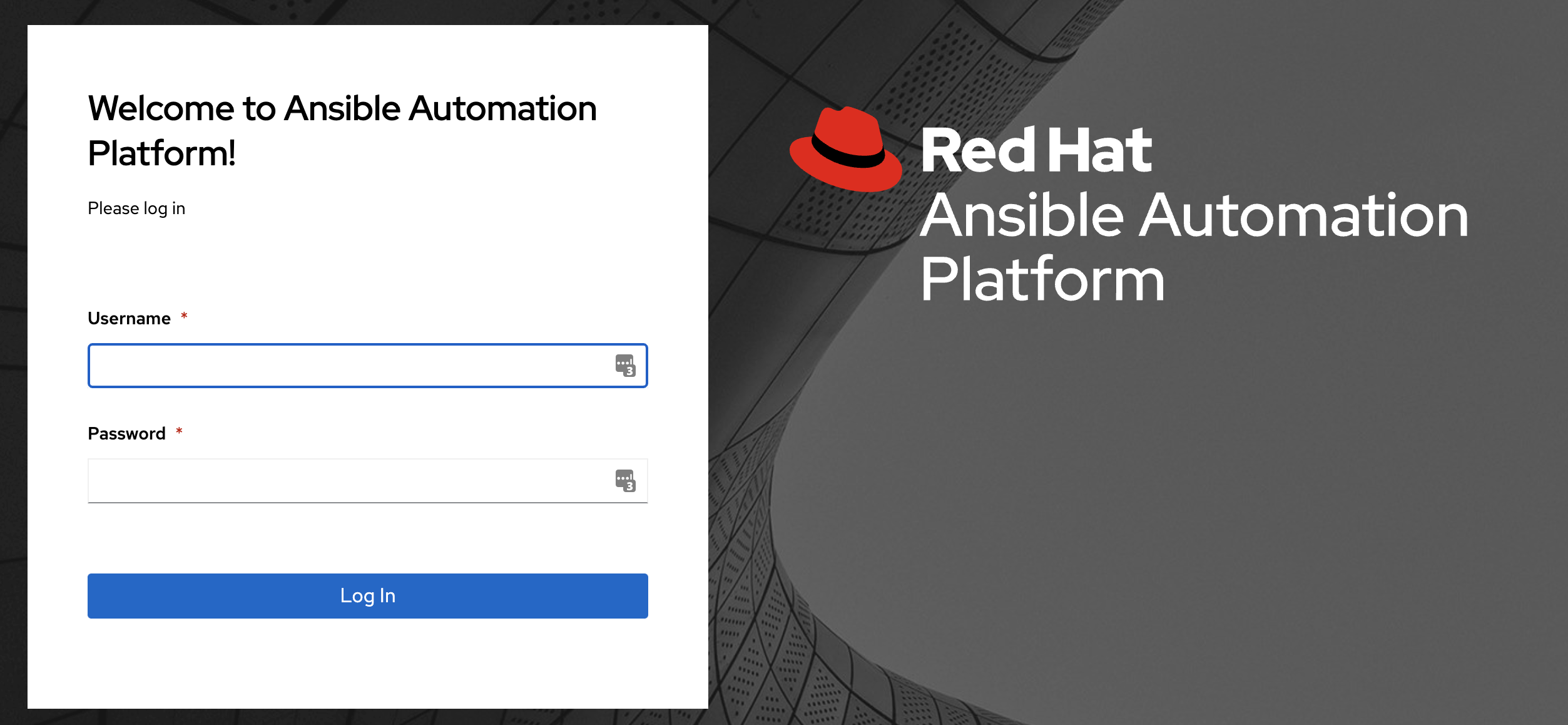
- The username will be
admin - password provided on launch page
-
After logging in the Job Dashboard will be the default view as shown below.
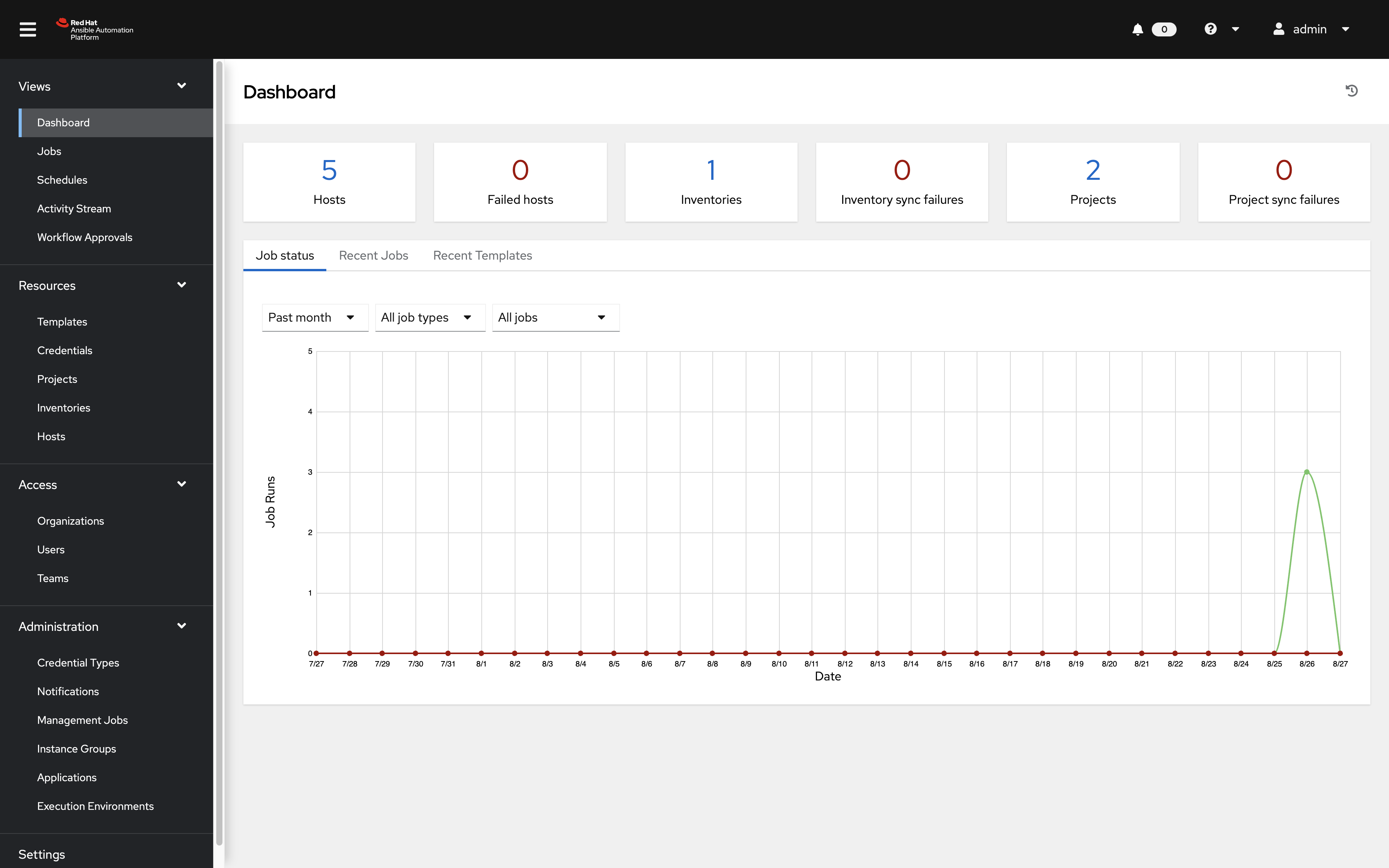
-
Click on the ? button on the top right of the user interface and click About
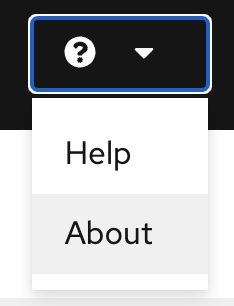
-
A window will pop up similar to the following:
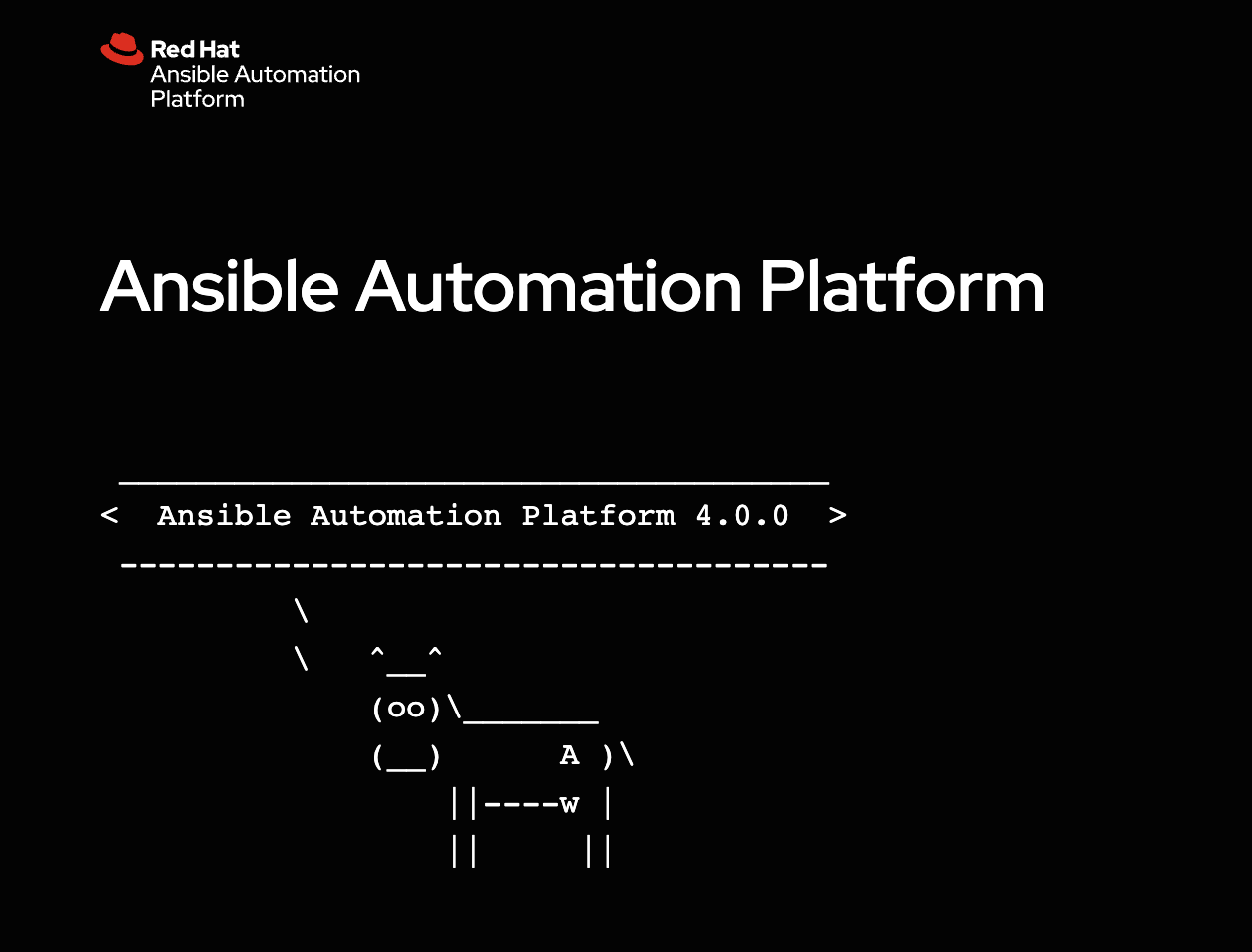
Step 2: Examine the Ansible Automation Platform Inventory
An inventory is required for Ansible Automation Platform to be able to run jobs. An inventory is a collection of hosts against which jobs may be launched, the same as an Ansible inventory file. In addition, Ansible Automation Platform can make use of an existing configuration management data base (cmdb) such as ServiceNow or Infoblox DDI.
Note:
More info on Inventories in respect to Ansible Automation Platform can be found in the documentation here
-
Click on Infrastructure link under Automation Execution on the left menu bar, then click the Inventories link.
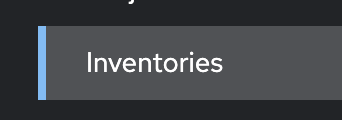
-
Under Inventories click on the
Workshop Inventory.
-
Under the
Workshop Inventoryclick the Hosts button at the top. There will be four hosts here, rtr1 through rtr4 as well as the ansible control node.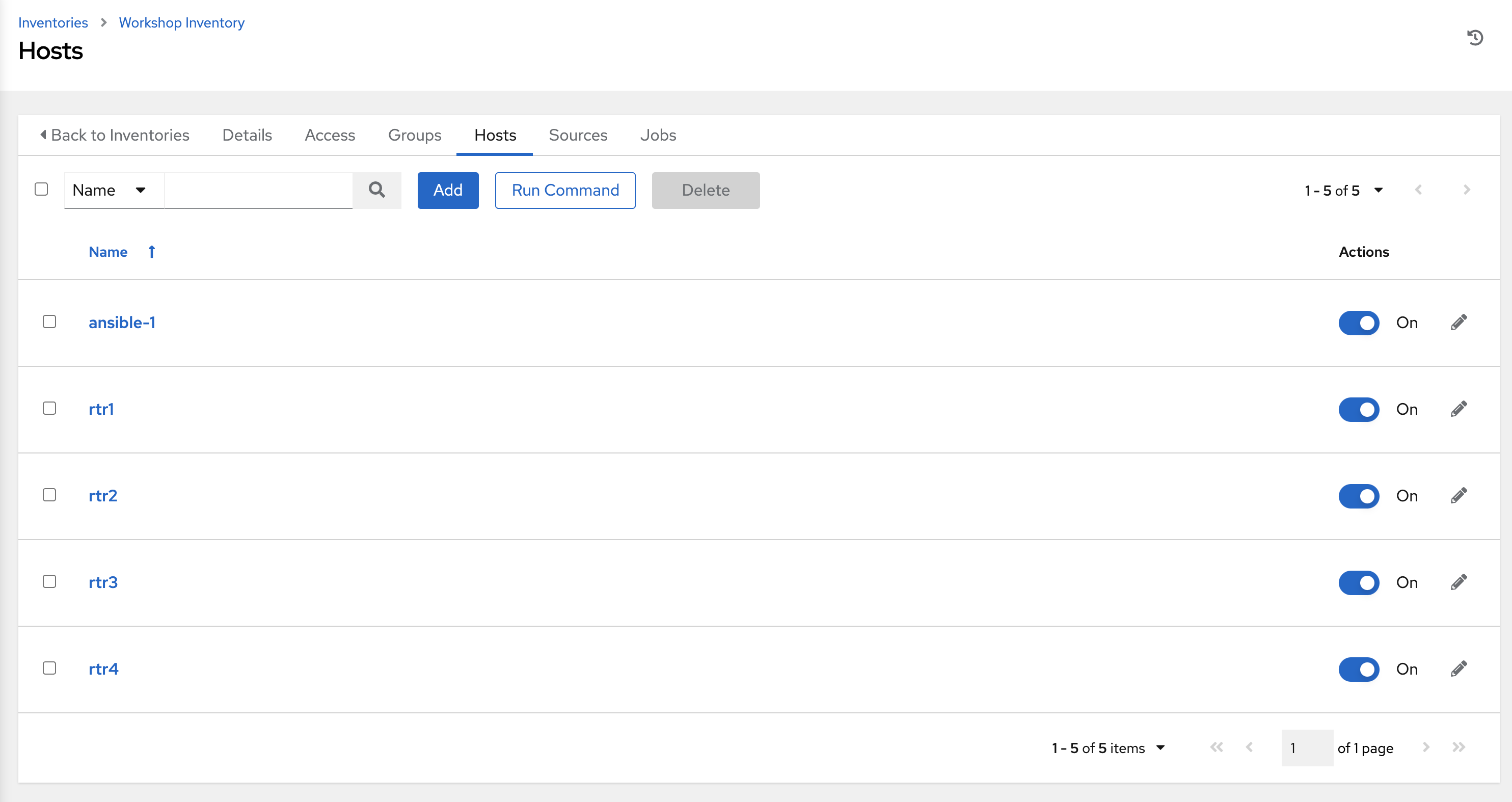
-
Click on one of the devices.
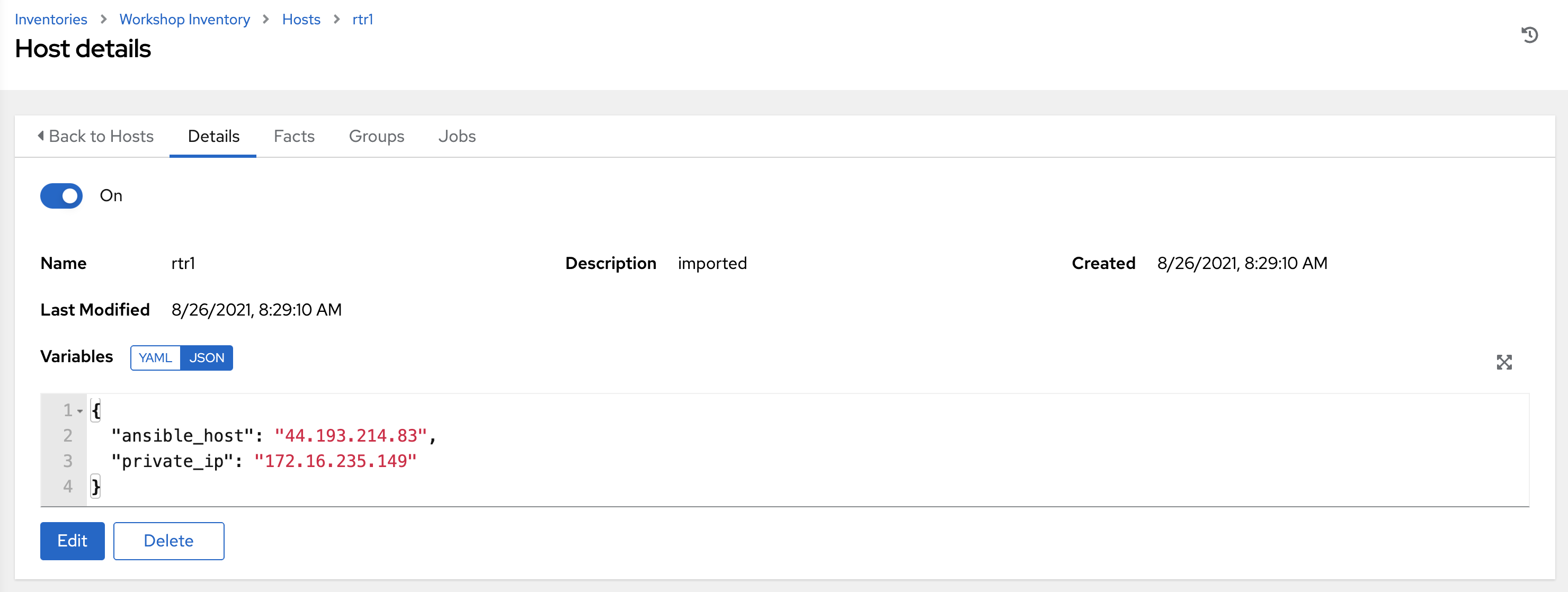
Take note of the VARIABLES field. The
host_varsare set here including theansible_hostvariable. -
Click on GROUPS. There will be multiple groups here including
routersandcisco. Click on one of the groups.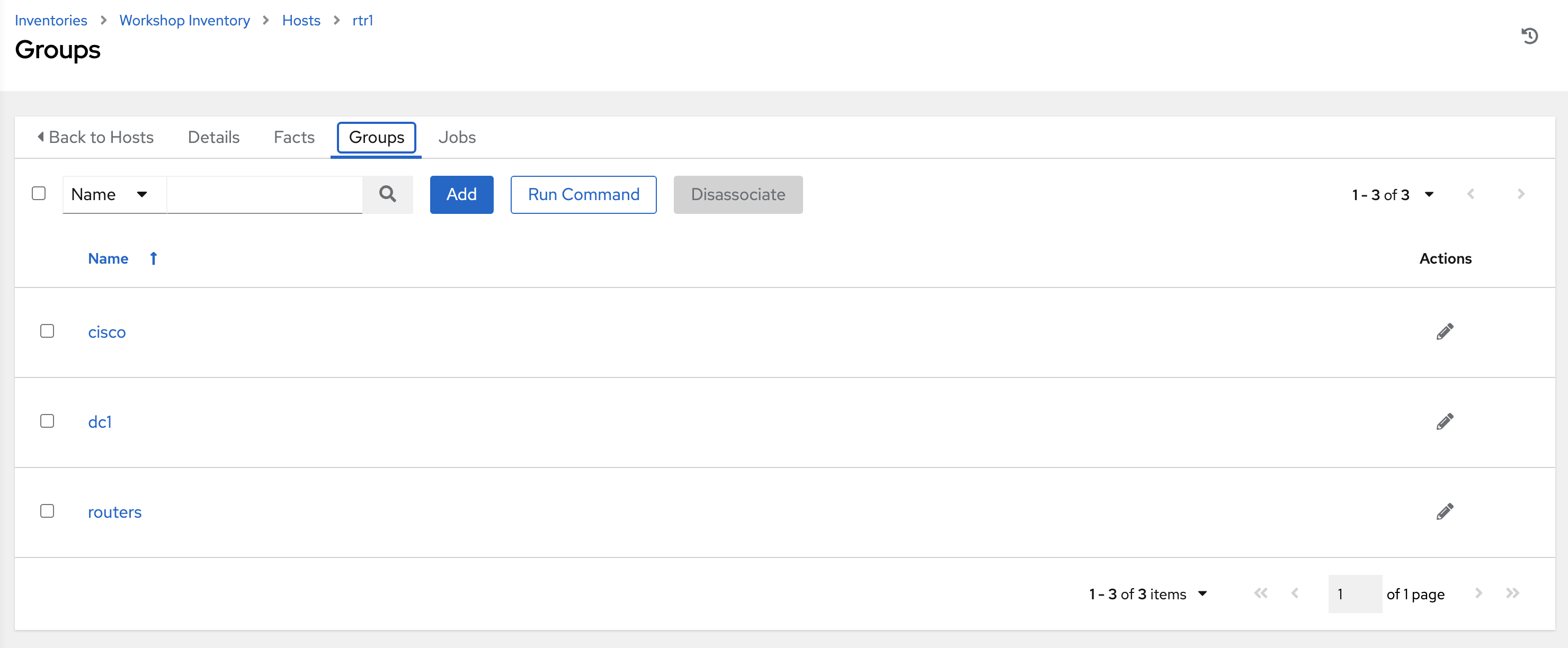
-
Click on one of the groups.

Take note of the VARIABLES field. The
group_varsare set here including theansible_connectionandansible_network_osvariable.
Step 3: Examine the Ansible Automation Platform Workshop Project
A project is how Ansible Playbooks are imported into Ansible Automation Platform. You can manage playbooks and playbook directories by either placing them manually under the Project Base Path on your Ansible Automation Platform server, or by placing your playbooks into a source code management (SCM) system supported by Ansible Automation Platform, including Git (Github, Gitlab, etc).
Note:
For more information on Projects in Ansible Automation Platform, please refer to the documentation
-
Click on the Projects link under Automation Execution on the left menu bar.

-
Under PROJECTS there will be a
Workshop Project.
Note that
GITis listed for this project. This means this project is using Git for SCM. -
Click on the
Workshop Project.

Note:
Source Control URL is set to https://github.com/network-automation/toolkit.
Step 4: Examine the Ansible Automation Platform Workshop Credential
Credentials are utilized by Ansible Automation Platform for authentication when launching Jobs against machines, synchronizing with inventory sources, and importing project content from a version control system. For the workshop we need a credential to authenticate to the network devices.
Note:
For more information on Credentials in Ansible Automation Platform please refer to the documentation.
-
Click on the Infrastructure link under Automation Execution on the left menu bar, then click on the Credentials link

-
Under Credentials there will be multiple pre-configured credentials, including
Workshop Credential,Controller Credentialand theregistry.redhat.io credential. Click on theWorkshop Credential.
-
Under the
Workshop Credentialexamine the following:
- The Credential type is a Machine credential.
- The Username is set to
ec2-user. - The SSH Private Key is already configured, and is Encrypted.
Automation mesh
Automation mesh is an overlay network intended to ease the distribution of work across a large and dispersed collection of workers. Mesh nodes establish peer-to-peer connections with each other across your existing networks bringing automation closer to the endpoints that need it.
Automation mesh is already configured and ready to use in your workshop environment.
Note
Learning about automation mesh falls outside the scope of this workshop. However, please try our hands-on, interactive labs to learn more about automation mesh and other Ansible Automation Platform features.
Takeaways
- Ansible Automation Platform needs an inventory to execute Ansible Playbooks against. This inventory is identical to what users would use with the command line only Ansible project.
- Ansible Automation Platform can sync to existing SCM (source control management) including GitHub.
- Ansible Automation Platform can store and encrypt credentials including SSH private keys and plain-text passwords. Ansible Automation Platform can also sync to existing credential storage systems such as CyberArk and Vault by HashiCorp.
Complete
You have completed lab exercise 5
You have now examined all three components required to get started with Ansible Automation Platform. A credential, an inventory and a project. In the next exercise we will create a job template.
Previous Exercise | Next Exercise
Click here to return to the Ansible Network Automation Workshop

